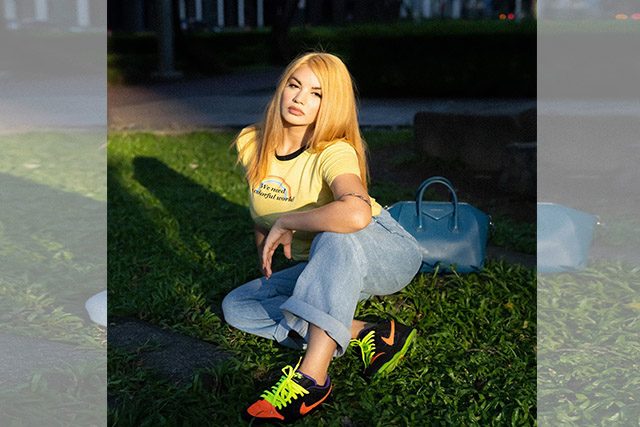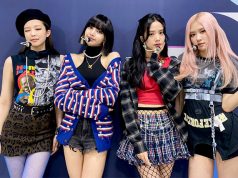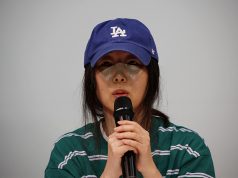Beauty queen-turned-singer Imelda Schweighart received criticisms on social media after she expressed her dislike for K-pop music, in a Facebook post which had since been deleted.
Schweighart, former Miss Earth Philippines in 2016, shared her sentiments against K-pop in a series of posts. She also claimed that Filipino fans are losing their “identity.”
Despite the deletion of the posts, local mainstream media managed to take screenshots of them and share them online.
In one post, she said: “I hate K-pop.”
In another post, she wrote: “Filipinos are losing their identity trying to be like Koreans. Konting pride, please?”
In the third post she added: “Di hamak na mas magaling namang mag-English mga Pinoy kesa Korean. Kala ko ba Chinese nananakop? I think we’re getting it wrong. Lagi na lang tayong sinasakop.”
In the comments section, a Facebook user countered her and argued that K-pop that does not lessen a Filipino fan’s identity.
The Filipino-German model responded and reiterated her view that preference over K-pop music takes away the fans’ Filipino identity.
Schweighart also asserted that K-pop artists “sell” insecurity rather than self-love.
“Haven’t you seen the oppression and slavery on Korean artists? The processes and suffering for entertainment. I’m not sure if anyone can identify to them but if anyone could, it’s imagining what you could look like after heavy plastic surgery. It’s altering the children’s minds to alter how they look…and it’s carving the next generation’s minds…Insecurity is what they sell. They are not promoting self-love,” she said.
“I want to see us carve our own lane, promote self-love, acceptance for shapes and sizes without too much compromise and sacrifice as entertainers. Diversity, for once!” she added.
Schweighart made headlines in 2016 when she relinquished her crown from the Miss Earth Organization after she made controversial remarks against the winner Miss Earth Ecuador Katherine Espin and compared President Rodrigo Duterte to Adolf Hitler.
The good in K-Pop, according to fans
After Schweighart’s views on K-Pop circulated online, her name “Imelda” landed on the top trends list of local Twitter for hours on Monday evening.
Responding to Schweighart’s comment on lossing Filipino identity, local K-pop fans pointed out that they still support OPM (Original Pinoy Music) artists and even dance to their songs even while also appreciating K-pop music.
One Facebook user cited the adage: “Music knows no boundaries.”

They also recalled the charitable activities fans have done recently. Filipino fans of K-pop juggernaut BTS previously managed to raise more than P2 million for the typhoon victims. Their donation reached P4 million on Monday evening.
Last Sunday, Vice President Leni Robredo also thanked fans of Blackpink and Bang Yedam of TREASURE for their relief efforts.
On the other hand, some Filipinos cited SB19, a five-member Filipino boy band inspired by K-pop music. This boy group recently gained traction in the Billboard’s Social 50 chart overseas.
MERON din namang magandang impluwensya ang K-pop. Tsaka Just like @SB19Official naging inspiration nila ung K-pop KAYA nabuo sila, ngayon pinapakita nila na kaya din ng pinoy na magpakita ng talento at maipakilala ang kultura natin sa buong mundo
— Madame Kilay STREAM GITZ (@madame_kilay) November 23, 2020
SB19 is under ShowBT Philippines Corporation, a local arm of Korean label ShowBT.
A Facebook user also added K-pop helps his alleviate stress during trying times, citing that his child personally destress by listening to it.

Some comparisons
Others, meanwhile, left scathing remarks against the type of music Schweighart released on YouTube and Spotify and other streaming platforms.
Her singles include “Power Trip,” “Bubba Luva,” and “Super Wave.”
Imelda Schweighart, hating kpop. Demanding filipino kpop fans to support her music.
Her music: pic.twitter.com/jq8WUGbWCO— demille⁷ (@demifiore) November 23, 2020
Twitter user @Sykknoo also compared Schweighart to another beauty queen, Winwyn Marquez, who was the first Filipino to win the Reina Hispanoamericana crown and also a K-pop fan.
“Wynwyn is a KPOP fangirl, Filipino actress, model, dancer, beauty queen who was crowned the first Reina Hispanoamericana Filipinas title in the Miss World Philippines 2017 and now a Marine reservist. A beauty with a brain,” the user said.
K-pop stereotype
In a September 2019 opinion piece, Nikta Dayradel of Florida-based student-run news site OviedoJournalism.com, said that since Korean music entered the United States, several people have strong opinion against it.
“The most common reason people don’t like K-pop is they do not know what they are saying since it’s in Korean, so they can’t ‘click’ with the lyrics,” Dayradel wrote.
“Another reason people dislike about these bands is their makeup. ‘They look like girls,’ or ‘why are they wearing lipstick and eye shadow,’ but it’s their culture to do so. In Korea, it’s a common thing for some boys to wear makeup, it’s a part of their lifestyle,” she also cited.
However, she said that the rise of K-pop genre signals that it is entering the new phase.
“The genre’s growing popularity says as much about the talent of groups like BTS as it does about the country’s expanding role in global affairs,” she added.
Lim cited that the biggest aspect of K-pop’s appeal is “the group members’ relentless pursuit of perfection,” adding that performances usually involve perfectly synchronized choreography.
“K-pop’s global ambition is another quality that distinguishes the genre from other Korean music. Exporting K-pop to the rest of the world is not only a goal of the Korean music industry, but also a government priority,” Lim said.
She also cited a research showing that Westerners stereotypically viewing Asians as an imitation of Westerners “while downplaying Asians’ self-assertion and individuality, which are qualities valued by Western societies.”
Despite this, Lim cited the popular septet, BTS, whose members are taking the international music industry by storm. She said this group “have done more than perfect their choreography and looks” “while also put their personalities on full display.”










